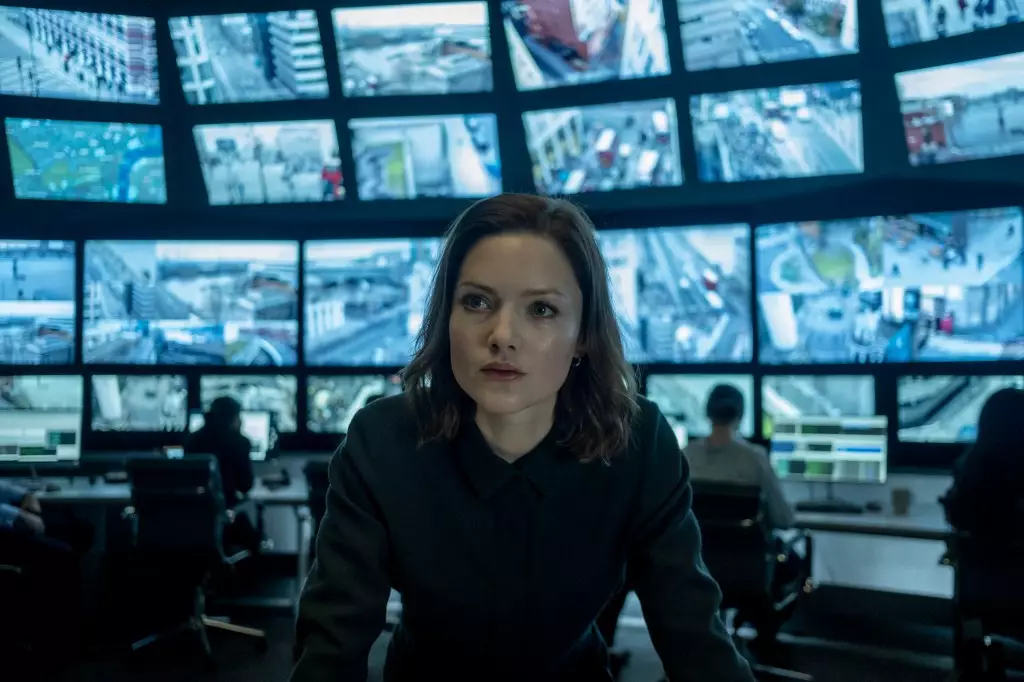The excitement surrounding the return of the BBC’s surveillance thriller, *The Capture*, for its third season is palpable. Picking up a year after protagonist Rachel Carey, played by Holliday Grainger, aired a shocking deepfake that revealed the UK intelligence service’s controversial video manipulation program, known as Correction, the series elegantly navigates through a web of ethical dilemmas intrinsic to surveillance technology. This narrative leap provides ample room for exploring not only the technological advancements but also the societal implications that lurk behind them.
As Carey assumes the role of acting head of SO15, her quest to restore public trust amidst ongoing investigations into governmental misconduct sets a potent stage for conflict. The introduction of the new Operation Veritas camera system indicates a shift towards transparency, yet it resonates with the audience’s skepticism about the genuine intentions behind such innovations. Viewers are left pondering whether it’s possible to achieve accountability through a system initially cloaked in deception. The questions this program raises are significant, tapping directly into the zeitgeist of modern society’s ambivalence towards surveillance, technology, and governmental trust.
The Rich Cast and Their Roles
Season three welcomes an impressive ensemble, including Killian Scott, who has gained acclaim in previous dramas like *Dublin Murders* and *Strike*. The existing cast members, such as Indira Varma and Ben Miles, return, ensuring a rich tapestry of characters that contribute to the narrative’s depth. Each actor is tasked with embodying complex roles that grapple with moral ambiguity—McCarthyism meets modern espionage. This element of characterization brings authenticity and weight to the overarching theme: the struggle for power in an age where information—and disinformation—can dictate reality.
Gone are the days when sinister government operations could thrive in the shadows. In a world where even the casual viewer is educated in the art of deepfakes, *The Capture* turns its focus toward individual stories that are as captivating as they are disturbing. The forthcoming season could potentially delve more into the characters’ psyches, challenging viewers to reflect on their own positions regarding privacy and state surveillance.
Pacing and Direction: A Test of Tension
Directed by Anthony Philipson and Johnny Allan, whose previous works have mirrored the genre’s hallmark traits—pacing, suspense, and emotional engagement—the new season promises to escalate the tension. As viewers become increasingly desensitized to media manipulation in the real world, the show’s ability to blend captivating storytelling with prevailing social dilemmas will be instrumental in keeping the audience engaged.
With Lindsay Salt, BBC’s Drama Director, proclaiming that the writing will “dazzle and terrify,” the anticipation is indeed justified. This thrilling mix of timely social commentary and edge-of-your-seat excitement positions *The Capture* not merely as entertainment but as an engaging critique of our evolving relationship with technology and government oversight.
Creatively, this series is a bold exploration of a world where the lines between reality and fabrication blur, and the implications are as pertinent as ever. As secrets unravel and tensions rise within the characters and the narrative, viewers will undoubtedly find themselves questioning the truths of their own digital lives.
